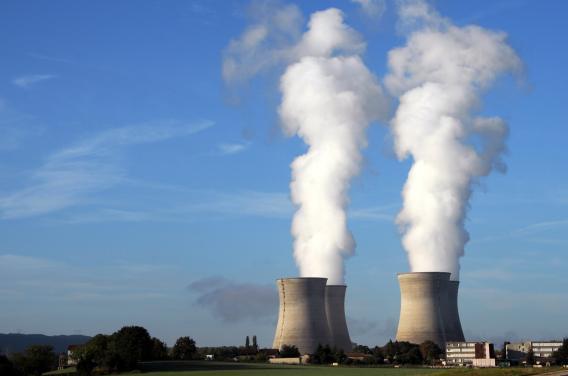A good, politically charged documentary often seizes on what the audience already believes and throws fuel on the fire (see, e.g., the work of Michael Moore). A better such documentary tries to convince its audience that what it takes for granted is flat-out wrong. Pandora’s Promise, which premiered at Sundance, does just that. It makes the utterly convincing case that anyone who considers themselves an environmentalist or takes climate change seriously should favor more nuclear power.
In the 1980s, nuclear power, never truly popular, contracted an image problem to rival Lance Armstrong or even Penn State football. Chernobyl and Three Mile Island were so downright terrifying that the public immediately lost its appetite for the stuff. Invisible, cancerous, deadly: Radioactivity hits all of our deepest fears. Hiroshima, Fukushima, Silkwood—the words themselves seem to poison the air.
But our fears may be way out of proportion to the actual risks, Pandora’s Promise says. Truth is, no one has actually died in the United States as a consequence of a nuclear power accident, while coal kills more than 14,000 people a year (mainly through particulate pollution). In terms of worldwide mortality rates, nuclear is scary, but it kills fewer people per watt of power than coal, oil, and even solar. (People fall off rooftops when installing solar panels.) Chernobyl, the worst nuclear accident in history, though it killed many people at the time, has had surprisingly limited long-term effects, according to scientists. Perhaps, like many people, I picture Chernobyl as Hell on earth—but animals and people are actually living there again, and the radiation is at merely background levels.
It’s a question of alternatives. The film centers on a new breed of scientists and environmental activists who were once ardent foes of nuclear power, but now think there is no better option. Greens are all against fossil fuels, but the new breed think that pinning our our hopes entirely on wind and solar actually increases our dependence of such environmentally devastating energy sources. Everyone loves the idea that we could just install more efficient light bulbs and live off windmills and solar panels, but that’s a dangerous fantasy, one that makes us blind to the hard choices we face.
The fact is that even after decades of subsidized investment and building, even the United States, which has invested in wind and solar heavily, still relies on those sources for just 3.6 percent of our power needs. Meanwhile, in China, India, and Brazil, where demand is growing fastest, the wind and solar option is basically off the table. It’s going to be fossil or nuclear: There is no other choice. Indeed the film alleges that the fossil fuel industry loves solar and wind because it knows they will never pose a serious threat to the supremacy of oil and coal. The bottom line is, if we care about climate change, we have to surrender the fantasy that solar and wind are going to solve our needs.
I found watching this film uncomfortable, because, like most of us, I intuitively find something scary about nuclear power. Michael Shellenberger, one of the leading greens for nuclear power, confirmed to me that no major environmental group in the United States officially supports nuclear as of now. But what is the role of science if not to meet our greatest fears with actual data? Tomatoes were once thought poisonous, and doctors once believed it was wrong to treat illness by cutting open the human body. Our fear of nuclear power has gone too far.
